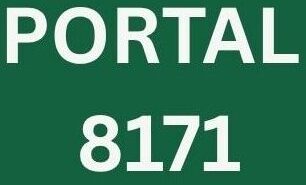Different Types of Loans in future, When it comes to financing major life decisions—whether buying a home, funding education, or covering unexpected expenses—loans can provide the necessary financial support. However, navigating the world of loans can be overwhelming due to the variety of options available. Each loan type serves a specific purpose, with unique terms, interest rates, and repayment structures. This comprehensive guide explores the different types of loans, their benefits, drawbacks, and how to choose the right one for your financial needs in 2025.
What Is a Loan?
A loan is a sum of money borrowed from a lender, such as a bank, credit union, or online lender, with the agreement to repay it over time, typically with interest. Loans are designed to meet various financial needs, from purchasing a car to consolidating debt. Understanding the types of loans available can help you make informed decisions to achieve your financial goals without overextending your budget.
Key Loan Terminology
Before diving into loan types, let’s clarify some essential terms:
- Principal: The original amount borrowed.
- Interest Rate: The cost of borrowing, expressed as a percentage of the principal.
- Term: The length of time you have to repay the loan.
- Collateral: An asset (e.g., a house or car) used to secure the loan, which the lender can seize if you default.
- APR (Annual Percentage Rate): The total cost of the loan, including interest and fees, expressed as a yearly rate.
Now, let’s explore the most common types of loans and their applications.
Types of Loans
1. Personal Loans
Personal loans are versatile, unsecured loans that can be used for almost any purpose, such as consolidating debt, funding a vacation, or covering medical expenses.
Features:
- Unsecured: No collateral required, making them accessible but often with higher interest rates.
- Fixed or Variable Rates: Interest rates can be fixed (consistent throughout the loan term) or variable (fluctuating with market conditions).
- Loan Amounts: Typically range from $1,000 to $50,000.
- Repayment Terms: Usually 1 to 7 years.
Pros:
- Flexibility in use.
- No collateral risk.
- Quick approval and funding, especially with online lenders.
Cons:
- Higher interest rates compared to secured loans.
- Stricter credit requirements.
- Potential for high fees.
Best For:
Individuals with good credit seeking funds for miscellaneous expenses or debt consolidation.
2. Mortgage Loans
Mortgage loans are used to purchase real estate, such as a home or investment property, and are secured by the property itself.
Types of Mortgages:
- Fixed-Rate Mortgage: Offers a consistent interest rate over the loan term (e.g., 15 or 30 years).
- Adjustable-Rate Mortgage (ARM): Features a lower initial rate that adjusts periodically based on market conditions.
- FHA Loans: Insured by the Federal Housing Administration, designed for first-time homebuyers with lower credit scores.
- VA Loans: Backed by the Department of Veterans Affairs, available to veterans and active-duty military with no down payment.
Features:
- Secured: The property serves as collateral.
- Loan Amounts: Can range from tens of thousands to millions, depending on the property.
- Repayment Terms: Typically 15 to 30 years.
- Down Payment: Varies (0% for VA loans, 3.5% for FHA, 5-20% for conventional).
Pros:
- Long repayment terms reduce monthly payments.
- Potential tax deductions on mortgage interest.
- Builds home equity over time.
Cons:
- Risk of foreclosure if payments are missed.
- High total interest over long terms.
- Requires down payment and closing costs.
Best For:
Homebuyers or investors looking to purchase property.
3. Auto Loans
Auto loans are secured loans used to purchase vehicles, with the car serving as collateral.
Features:
- Secured: The vehicle can be repossessed if payments are missed.
- Loan Amounts: Typically $5,000 to $100,000, depending on the vehicle.
- Repayment Terms: Usually 2 to 7 years.
- Interest Rates: Vary based on credit score, loan term, and lender.
Pros:
- Lower interest rates than unsecured loans.
- Fixed monthly payments.
- Wide availability from banks, credit unions, and dealerships.
Cons:
- Risk of repossession.
- Depreciation reduces the car’s value over time.
- May require a down payment.
Best For:
Individuals purchasing a new or used vehicle.
4. Student Loans
Student loans finance higher education, covering tuition, books, and living expenses.
Types:
- Federal Student Loans: Offered by the government with fixed rates and flexible repayment options (e.g., Direct Subsidized/Unsubsidized Loans, PLUS Loans).
- Private Student Loans: Provided by banks or private lenders, often with variable rates and stricter terms.
Features:
- Unsecured: No collateral required.
- Repayment Terms: Typically 10 to 30 years, often with deferment options while in school.
- Interest Rates: Federal loans have fixed rates; private loans may be fixed or variable.
Pros:
- Federal loans offer income-driven repayment and forgiveness programs.
- Builds credit history with timely payments.
- No collateral risk.
Cons:
- High interest accrual, especially for unsubsidized loans.
- Private loans may have higher rates and fewer protections.
- Long-term debt burden.
Best For:
Students pursuing college or graduate education.
5. Business Loans
Business loans provide funding for starting or expanding a business, covering expenses like equipment, inventory, or working capital.
Types:
- Term Loans: Lump-sum loans with fixed or variable rates.
- SBA Loans: Backed by the Small Business Administration, offering favorable terms for small businesses.
- Business Lines of Credit: Flexible borrowing with access to funds as needed.
- Equipment Financing: Loans specifically for purchasing business equipment.
Features:
- Secured or Unsecured: Depends on the loan type and lender.
- Loan Amounts: Range from $5,000 to millions (e.g., SBA loans up to $5 million).
- Repayment Terms: Vary from 1 to 25 years.
Pros:
- Supports business growth.
- Potential tax deductions on interest.
- Flexible options for different business needs.
Cons:
- Strict eligibility criteria (e.g., business plan, revenue history).
- Risk of collateral loss for secured loans.
- High interest rates for startups with poor credit.
Best For:
Entrepreneurs and small business owners.
6. Payday Loans
Payday loans are short-term, high-interest loans designed to cover expenses until your next paycheck.
Features:
- Unsecured: No collateral required.
- Loan Amounts: Typically $100 to $1,000.
- Repayment Terms: Due on your next payday (usually 2-4 weeks).
- Interest Rates: Extremely high, often exceeding 400% APR.
Pros:
- Quick access to cash.
- Minimal eligibility requirements.
Cons:
- Exorbitant interest rates.
- Risk of debt traps due to rollovers.
- Not a long-term solution.
Best For:
Emergency situations only, with caution.
7. Home Equity Loans and HELOCs
Home equity loans and Home Equity Lines of Credit (HELOCs) allow homeowners to borrow against the equity in their homes.
Features:
- Secured: The home serves as collateral.
- Loan Amounts: Based on home equity (typically up to 85% of the home’s value).
- Repayment Terms: 5 to 30 years for home equity loans; HELOCs have a draw period (e.g., 10 years) followed by repayment.
- Interest Rates: Generally lower than unsecured loans, fixed for home equity loans, variable for HELOCs.
Pros:
- Lower interest rates.
- Potential tax deductions for home-related uses.
- Flexible use of funds.
Cons:
- Risk of foreclosure.
- Variable rates for HELOCs can increase payments.
- Requires sufficient home equity.
Best For:
Homeowners needing funds for renovations, debt consolidation, or large expenses.
How to Choose the Right Loan
Selecting the right loan depends on your financial situation, goals, and repayment capacity. Here are key factors to consider:
1. Purpose of the Loan
Identify why you need the loan. For example:
- Home purchase: Mortgage.
- Vehicle purchase: Auto loan.
- Education: Student loan.
- Flexible needs: Personal loan or HELOC.
2. Credit Score
Your credit score significantly impacts loan eligibility and interest rates. Check your score:
- Excellent (720+): Qualifies for the best rates.
- Good (660-719): Access to most loans with competitive rates.
- Fair (600-659): Limited options, higher rates.
- Poor (<600): May require subprime loans or secured options.
3. Interest Rates and Fees
Compare APRs, which include interest and fees, to understand the true cost of borrowing. Secured loans typically have lower rates than unsecured loans.
4. Repayment Terms
Choose a term that balances affordable monthly payments with total interest paid. Shorter terms mean higher payments but lower interest costs.
5. Secured vs. Unsecured
Secured loans (e.g., mortgages, auto loans) require collateral but offer lower rates. Unsecured loans (e.g., personal loans) have higher rates but no asset risk.
6. Lender Options
Explore banks, credit unions, online lenders, and government programs. Compare terms, rates, and customer reviews to find a reputable lender.
Tips for Borrowing Responsibly
- Borrow Only What You Need: Avoid taking on more debt than necessary.
- Check Your Budget: Ensure monthly payments fit within your income.
- Read the Fine Print: Understand fees, penalties, and terms before signing.
- Improve Your Credit: Pay bills on time and reduce debt to qualify for better rates.
- Shop Around: Compare offers from multiple lenders to secure the best deal.
Conclusion
Choosing the right loan requires careful consideration of your financial needs, credit profile, and repayment ability. Whether you’re buying a home, funding education, or starting a business, there’s a loan type designed to meet your goals. By understanding the different types of loans—personal, mortgage, auto, student, business, payday, and home equity—you can make an informed decision that supports your financial future. Always compare lenders, read terms carefully, and borrow responsibly to avoid financial strain.




